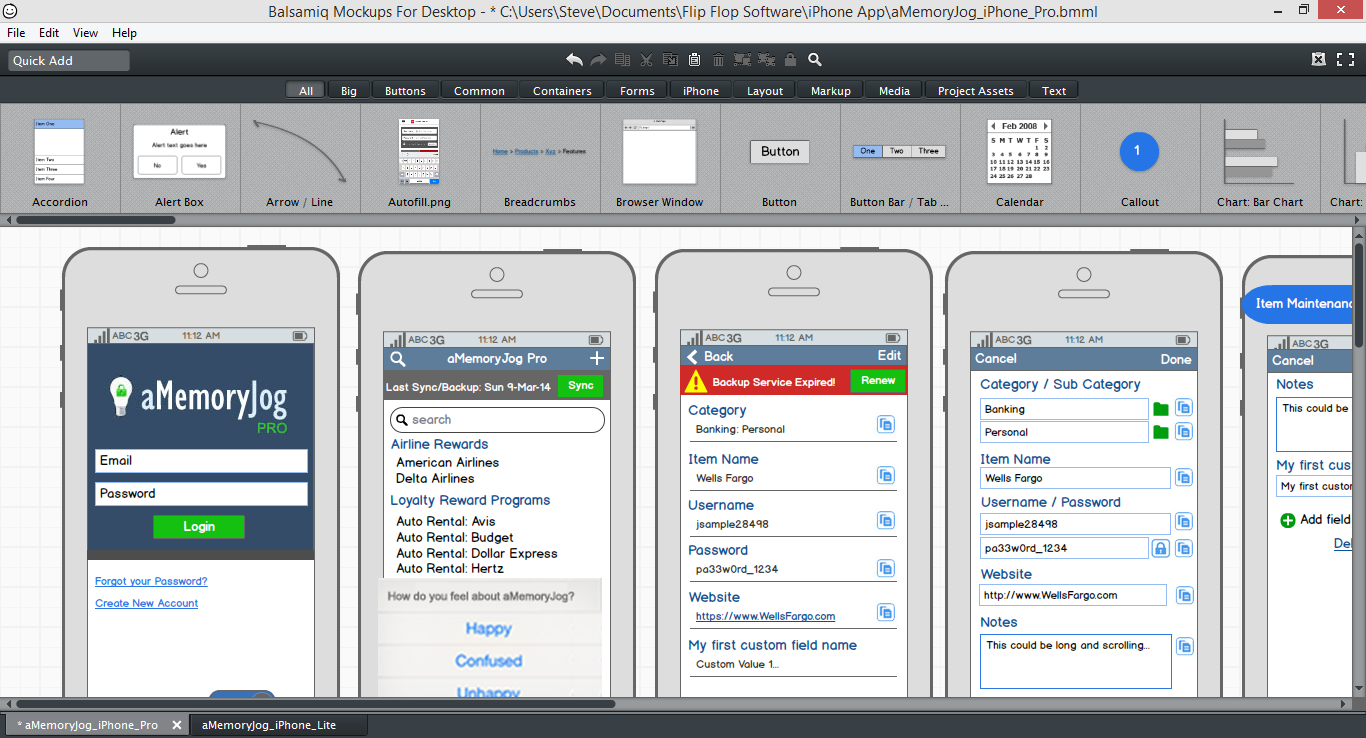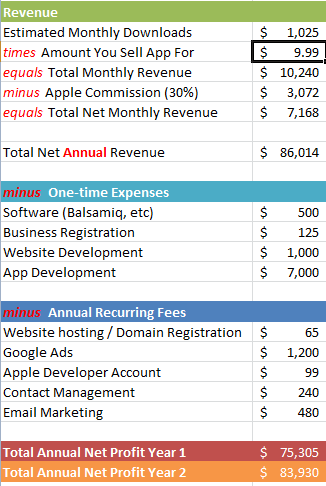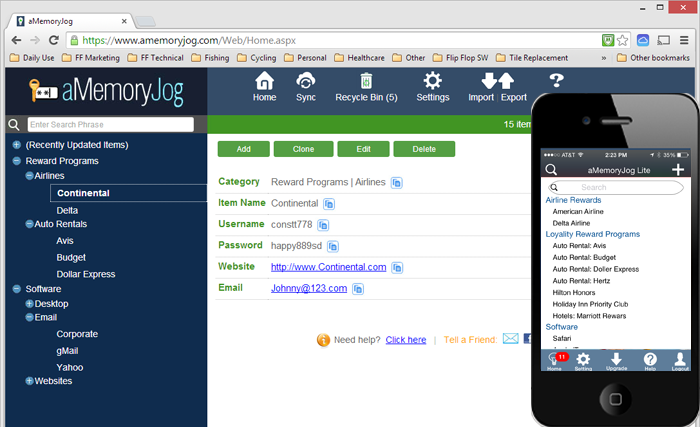In our last post, we discussed how to define your competitive advantages as you begin your #appreneur journey. Once you have sized up your competition, it is now time to determine if your app idea is financially viable.
If you want to rear financial blessings, you have to sow financially. – Joel Osteen
How Much will it Cost to Develop My App?
The cost to develop an app will depend on the number of screens and complexity of the app, who you choose to develop the app, and how detailed your specification is before getting an estimate. If you develop the app yourself, the costs will be smaller because there will be no subcontractor costs. However, I recommend you outsource the development so that you can spend your valuable time on pre-launch marketing and planning.
The first step in this process is to create a prototype of what your app might look like. There are some great prototyping tools available, I use Balsamiq Mockups. The cost of this software is minimal (one time fee of $79) and you can use it for all your upcoming apps if you are successful. Using Balsamiq, you can create each screen of your application, here is an example of the ones I put together:
By crafting your app ideas into a design, it forces you to flesh out the look and feel of each screen needed for a subcontractor to perform work. Once you have the prototype done, create a specifications document that a subcontractor can create an estimate from. In my specifications document, I like to include descriptive text that identifies what to do when any button is touched on the screen, what messages to display, etc. By defining this level of detail, the subcontractor can provide a much better estimate because there are less unknowns.
In future blogs, I will discuss the specifications document in more detail (what to include and exclude), where to find subcontractors, what legal documents you should have in place when working with subcontractors, and how to pick a good subcontractor.
Assuming you have created a good prototype and specifications document, the cost of the development of your app will depend on the number of screens and complexity of your app. Based on my own experience, here are some very general guidelines, the prices are for a single platform (Apple iPhone, Apple iPad, Android device, etc.):
- Small app (Less than 5 screens and little complexity) – $1,500 to $3,000
- Medium app (Less than 10 screens and medium complexity) – $3,000 to $6,000.
- Larger app (10+ screens and medium to harder complexity) – $6,000 to $15,000.
I also suggest that you ask the subcontractor to write the software in a way that allows them to re-use the code when targeting a different platform (Apple iPhone, Apple iPad, Android device, etc.). Also, ask the subcontractor for a ballpark estimate for creating a version in the other platforms once the first platform is done. By investing in a single platform first, it allows you to test the waters to determine if you want to sink additional money into the next platform. Once you recoup your costs on a specific platform, move on to another platform.
Other Costs to Consider
In addition to app development, here are some other costs to consider:
- Registering your Business – You will need a business name and want to register it your state or province. The cost of setting up a LLC (Limited Liability Company) is about $125.
- D-U-N-S number – It is also smart to get a Dunn and Bradstreet number for your business. This prevents you from having to use your social security number when working with vendors, you can use your D-U-N-S number instead. If you do this, allow 30 days to get it for free. If you want it expedited, it can cost as much as $299.
- Website – You will want to create a website for your app that allows you to talk about the features of the app and allow them to purchase. By having a website, you will also get indexed by Google, driving more sales of your product. If you know HTML, I suggest writing your own website. Start off by purchasing a website template from somewhere like Template Monster, they are generally less than $50. You can then simply change the template with your site details. If you are not comfortable creating your own website, you can outsource this just as you do the app development. The cost of this will probably run you about $1,000 or less, especially if you ask them to use the template you purchased.
- Website Hosting – You will also want to purchase a domain for your app (for example, I purchased www.aMemoryJog.com) and you will need a company to host the site. I purchased mine from Go Daddy, you should be able to purchase the domain and hosting for about $65 per year.
- Google Ads – Once your website is up and running, you can purchase Google Ads to drive business to your site. This is totally optional but can increase your sales. You have to analyze the sales it brings to determine if it is worth it. In my past experience, it is, but every scenario is different. I normally budget $100 per month for Google Ads. Of course, do not do this until your app is in available for sale.
- Apple App Developer (iTunes Connect) – To sell your app in the Apple App Store, you must sign up for iTunes Connect. This allows you to submit your app to Apple for review and once approved, they will post it in the app store. The cost for this is $99 per year. Apple will keep 30% of the sales from your app, and you will get 70%.
- Google Play Developer – Similar to iTunes Connect, if you plan to create your app for Android devices, you will need a developer account for Google Play. The cost is $25 per year and like Apple, they keep 30% of your sales.
- Email Marketing – If you plan to do any email marketing, you will need a product to send emails out automatically on your behalf. For example, when someone signs up for a trial of our web edition of aMemoryJog, it sends an email to the new subscriber welcoming them to the trial. Then every few days, it sends other emails explaining how the product works and how to purchase once their trial expires. This automated engine eliminates a lot of busy work of having to send these emails manually. Since I am a programmer by trade, I wrote the software to do this for my product. But you can purchase a tool to do this for your product. Tools like MailChimp are free to start with, allowing you to send up to 12,000 emails to 2,000 subscribers at no cost. After you exceed that, it could cost you from $40 to $100 a month, depending on the number of contacts you have and the number of emails you send.
- Contact Management Tools – Once you begin marketing to app reviewers, you will want software to keep track of who you have communicated with and who needs to be sent an email about your app. You can get a contact manager for free until you collect a certain number of contacts. I use Zoho CRM, it is free for 5,000 contacts or less and only $20 per month once you exceed that.
Related article: How to Build a Product Website for your App
Estimating Your Revenue
This is the tricky part. About the best you can do is to try to determine the revenue of your competitors and then estimate yours based on a percentage of that. I discussed this in a prior blog. But I have to tell you from experience, it is a crap shoot. You really won’t know your revenue until the product is in production. I always try to estimate very conservatively and hope to outpace my estimates. For example, you might look at the competitor with the least number of downloads and estimate that you can capture half that number of downloads.
The best way to estimate your revenue is to estimate your monthly downloads multiplied by the cost of your app, minus the App Store commission of 30%.
Putting it all Together
Once you estimate your revenue for the year, subtract the costs, then you have your expected net profit. If you can live on that net profit, great! If you can’t but it is at least half what you can live on, you can always create multiple apps to create a profit multiplier and still make the #appreneur life work.
Conclusion
We now have analyzed whether our app seems financially viable. If it looks promising, we should proceed. If not, we should go back to the drawing board – either think of another app idea or bail on app development in general. My next blog will be out in a couple of weeks — I will discuss how to monetize your app.
Shameless Plug
The app I am creating is slated for production in the App Store around July or August 2014. However, the web edition is already available at http://www.aMemoryJog.com. Once the app is done, it will seamlessly sync with the web version.
Download a free trial and check it out!
Also, if you like this blog, please share it with others to increase our following. Our twitter account is @2HourAppreneur and be sure to like my Facebook page at http://www.Facebook.com/2HourAppreneur.
Thanks for following the blog!




Pingback: How Will You Monetize your App? | 2 Hour Appreneur
Pingback: Putting the final touches on the Business Plan | 2 Hour Appreneur